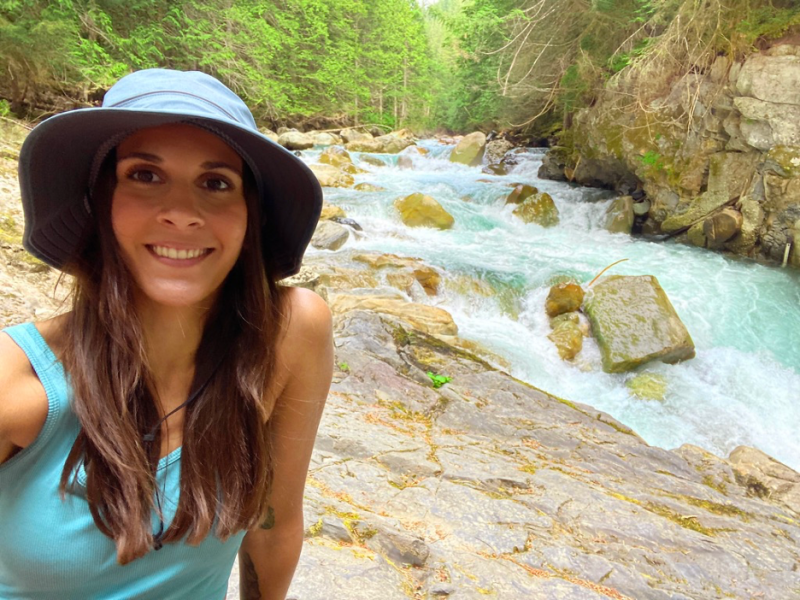WWU grad student Kristin Carlson working on a NWCASC fellowship on the Nooksack this summer
WWU Geology graduate student Kristen Carlson was announced as a 2022 Research Fellowship Program winner at the Northwest Climate Adaptation Science Center (NW CASC) in the spring, and is spending her summer fellowship conducting research related to climate change in the upper Nooksack River basin.
The Northwest Climate Adaptation Science Center fellowships each year enable a cohort of graduate students and postdoctoral fellows to develop decision-relevant science with collaboration of regional natural resource managers and decision-makers.
Carlson's research uses a distributed-hydrology model to examine how possible forest management strategies will affect low summer flows and winter peak flows in the upper Nooksack River basin, in response to projected warming climate conditions.
Fellows receive support for research aligned with the NW CASC Science Agenda and training in the principles and practices of co-production of decision-relevant science.
“My project stemmed from the Nooksack Tribe's interest in how forest harvesting affects streamflows and snow accumulation, and how selective management can help adapt to the impacts felt by climate change,” said Carlson.
Carlson grew up in Twin Lakes, Wisconsin and received her undergraduate degree in geoscience from the University of Wisconsin; her WWU faculty advisor is Professor of Geology Robert Mitchell.
Her focus in hydrology and geochemistry during a pilot study in the Sand Dunes of Kenosha, Wisconsin sparked her interest in continuing down a research-based path.
After her fellowship concludes, Carlson plans to present her research at the NW CASC Conference and will continue her research to fulfill my Master of Science Thesis.
“My research has changed the way I view forest harvesting, as there is usually a negative connotation with it, but in the case of my study, there could be benefits. Forest harvesting is inevitable, but there may be ways to manage forests that could positively affect the Nooksack Watershed and its endangered species,” said Carlson.
To learn more about the NW CASC and Kristen Carlson’s research visit nwcasc.uw.edu.
